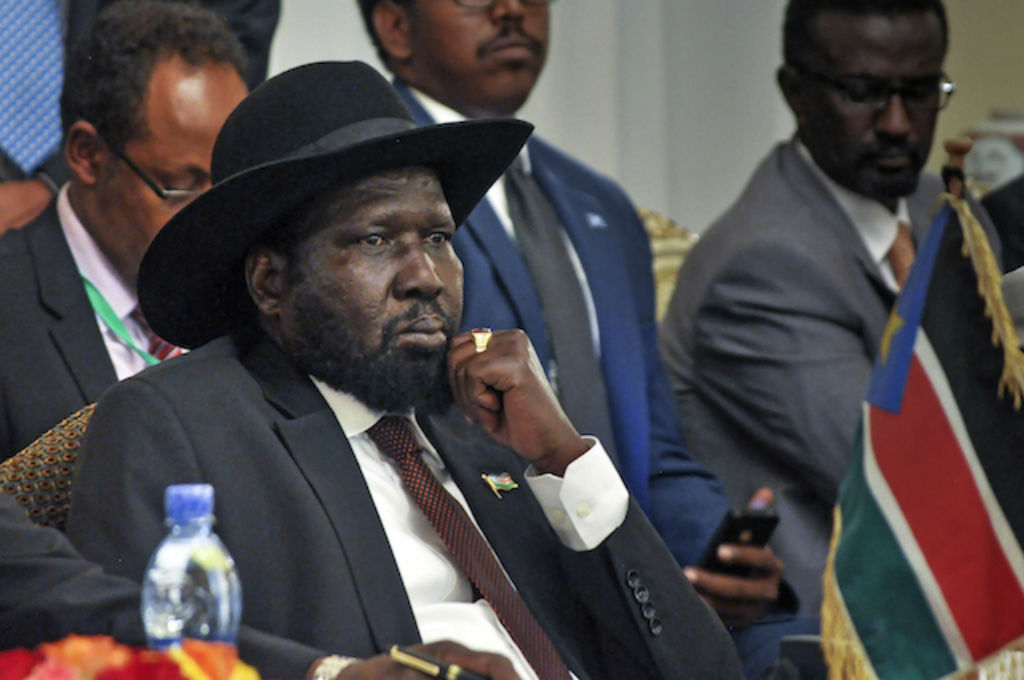
Washington, DC/Juba, February 13, 2019 (SSNA) — The Republic of South Sudan is run by a “Violent kleptocratic system of governance” which denies the young nation from making much-needed democratic reforms, a new report released by the Washington, DC-based Enough Project and seen by the South Sudan News Agency (SSNA) says.
The nearly 54-page report blames the ruling Sudan People’s Liberation Movement (SPLM) party and political allies for the ongoing political crisis in the country, branding the war-ravaged young nation “Hijacked State.” The text also says the 2011 constitution is a part of the problem.
“The South Sudanese conflict is rooted in the violent kleptocratic system of governance that the ruling Sudan People’s Liberation Movement (SPLM) began building in 2005, after the end of the Second Sudanese Civil War (1983–2005). In 2011, Kiir became president of newly independent South Sudan, and these key allies drafted the Transitional Constitution, which vested immense powers in Kiir’s hands that allowed him, for instance, to prorogue (discontinue without dissolving) the national legislature, fire elected governors, and dissolve legislative assemblies in the country’s states,” the report reads in part.
In the text, Enough Project argues that the constitution allows elites to act with impunity, conduct illicit dealings in the name of the country, and corrupt with impunity. The report also asserts that the 2011 constitution opens the door for even greater corruption, causing political disagreement between South Sudanese elites. The document also states that the current system of governance in South Sudan has hijacked national institutions.
“The destructive competition over power and access to opportunities for corruption resulted in a slow expulsion of some elites from the center of power and a consequential rise in power of others, dividing the ruling party into two factions, for and against Kiir. Those opposed to President Kiir largely coalesced behind Vice President Riek Machar,” the report explains.
“In South Sudan’s system of violent kleptocracy, leaders have hijacked institutions and stoked violent conflict, committed mass atrocities, and created a man-made famine. Amid the chaos of war, the ruling elites ransacked various sectors of the economy. South Sudan’s violent kleptocracy has distorted the country’s institutions, heaping catastrophic consequences on the national monetary reserve and creating an atmosphere in which too many hands are left to freely and repetitively reach into the public treasury with impunity. Services remain undelivered, business practices undermine the rule of law, and corruption abounds,” the text says.
The report states that “poor regulatory mechanisms” made it easy for the elites to loot with impunity, saying South Sudan officials have incorporated “corrupt practices” from Sudan into their political system of governance. The rights group also blames South Sudanese military leaders for the ongoing civil war, saying these leaders are allowed to dominate “decision-making processes on public spending to wield both power and money opportunistically.” The text adds, “These have abused their positions of power to steal from public coffers, wage war, and enlarge patronage networks.” The report also accuses military leaders of using “violence as a means of capturing the national economy and budget and to prolong their stay in power for the purpose of self-enrichment. Oil has represented the key prize in South Sudan since independence.”
The Enough Project calls on the United States and the global partners to use the international financial system to target South Sudan’s corrupt leaders’ finances and any network that enables the ongoing violence to continue.

